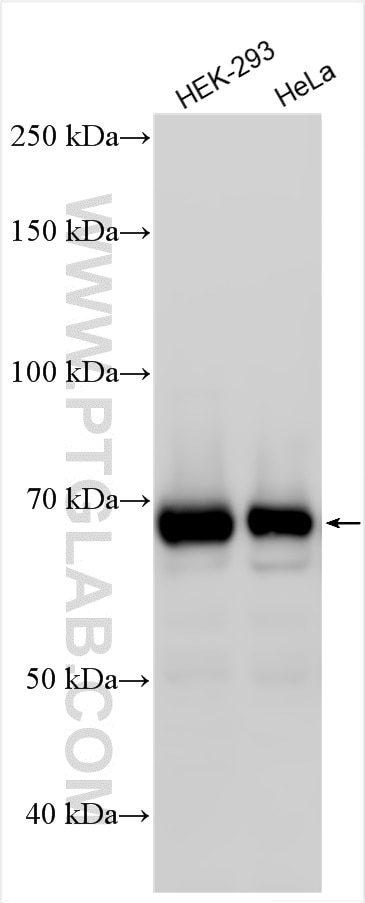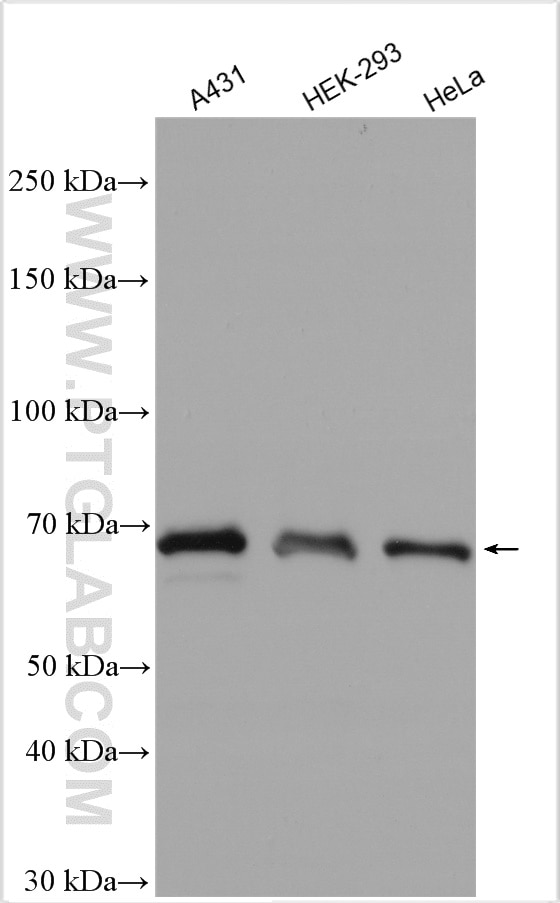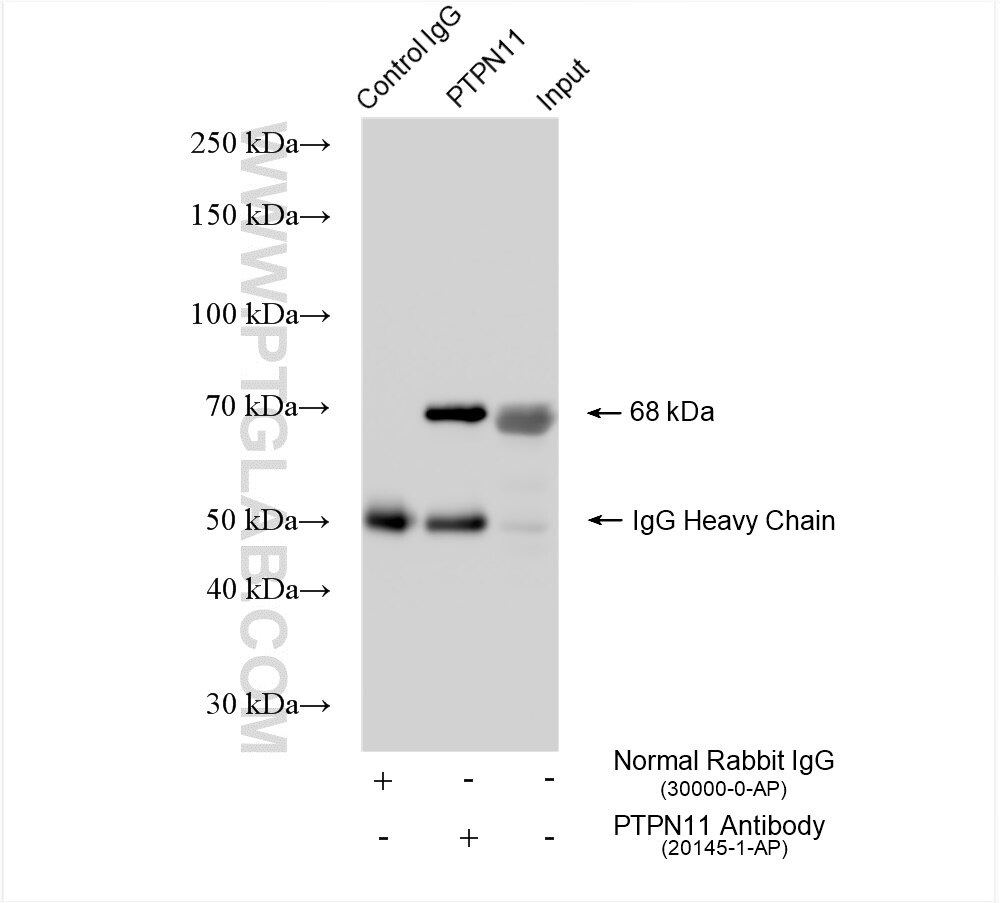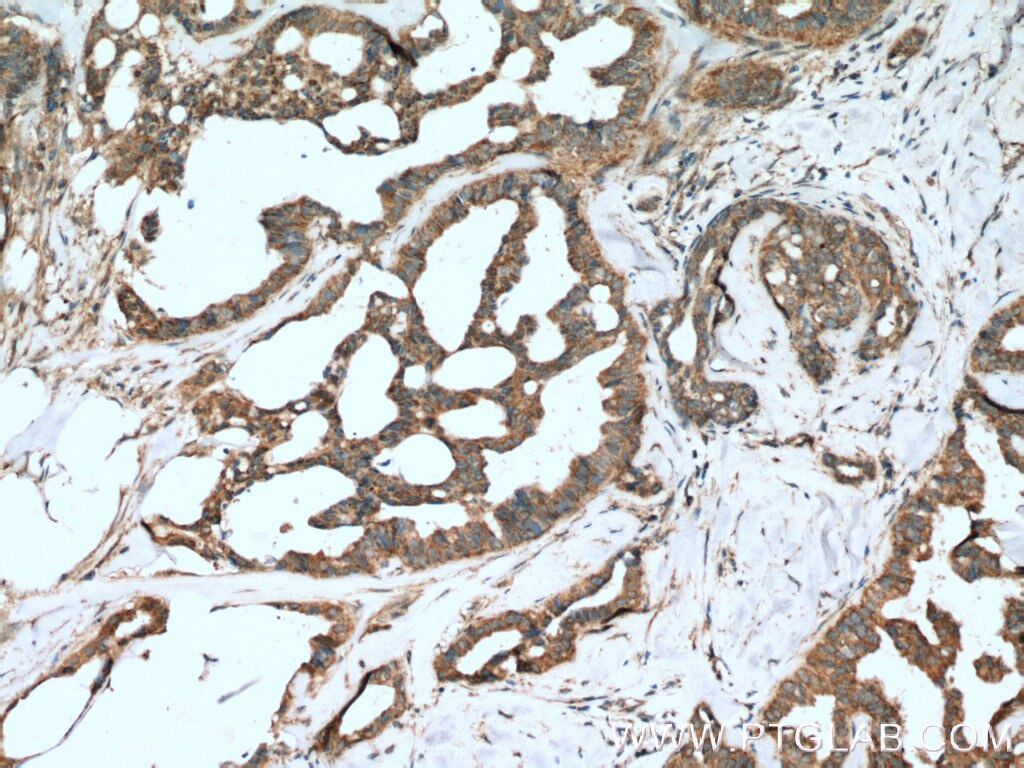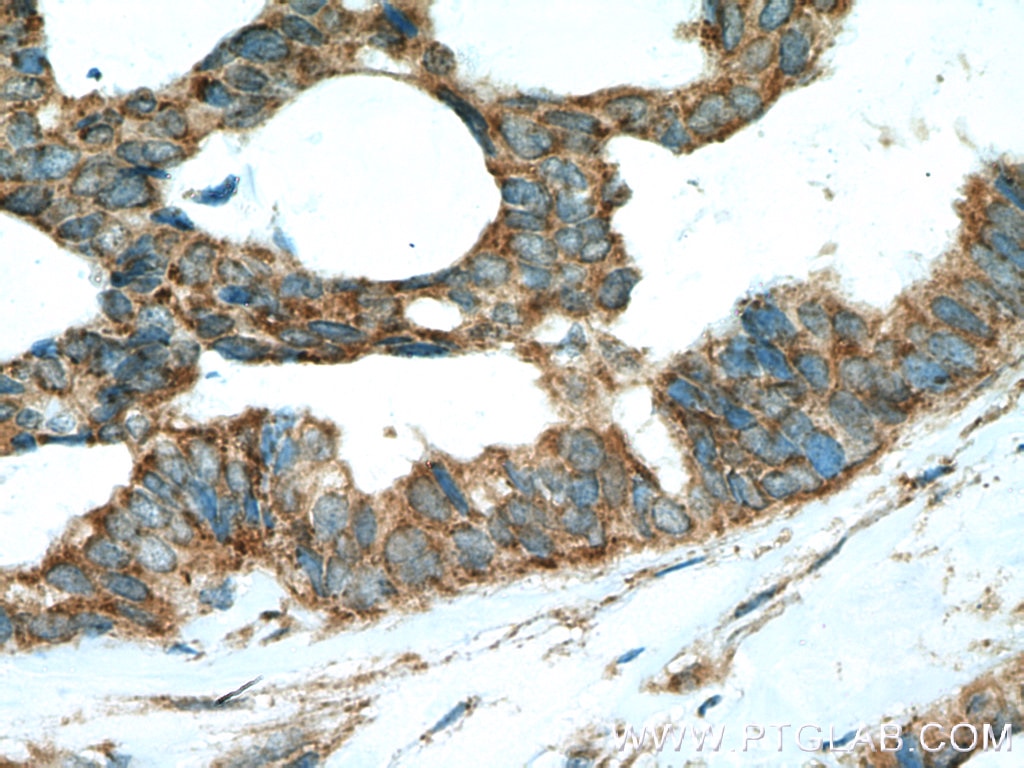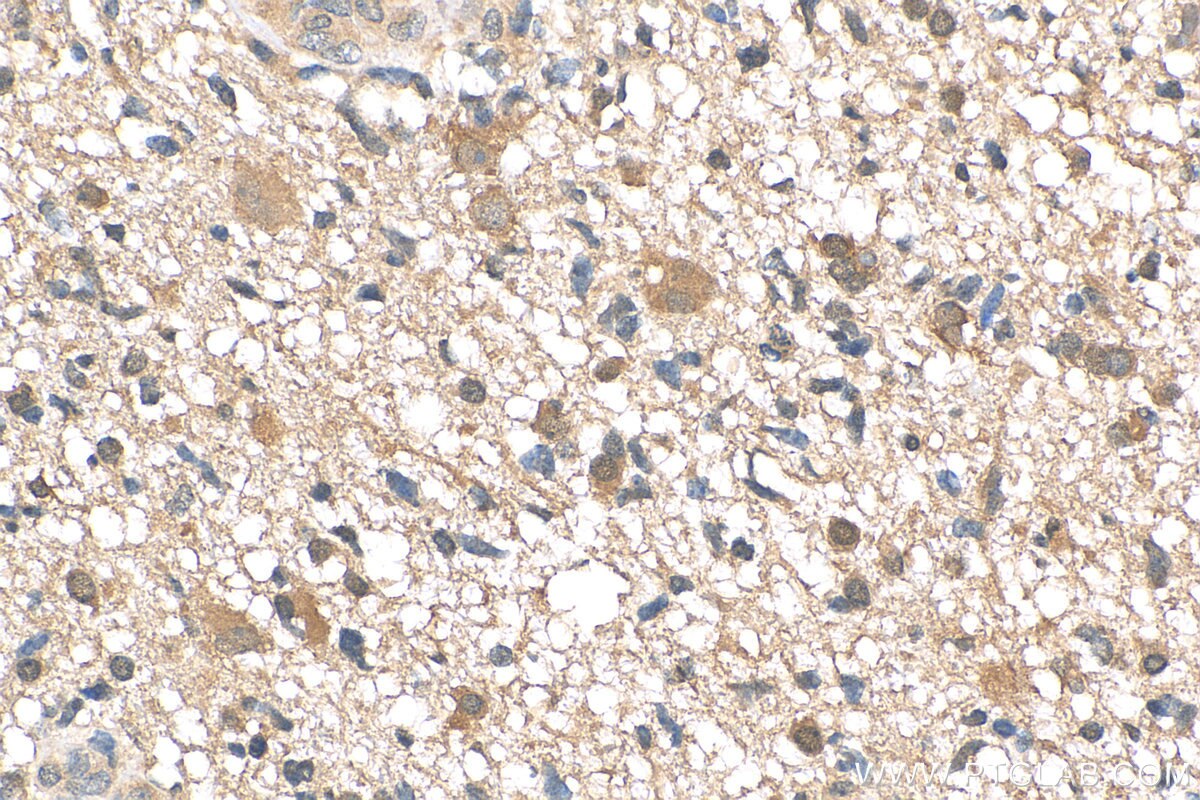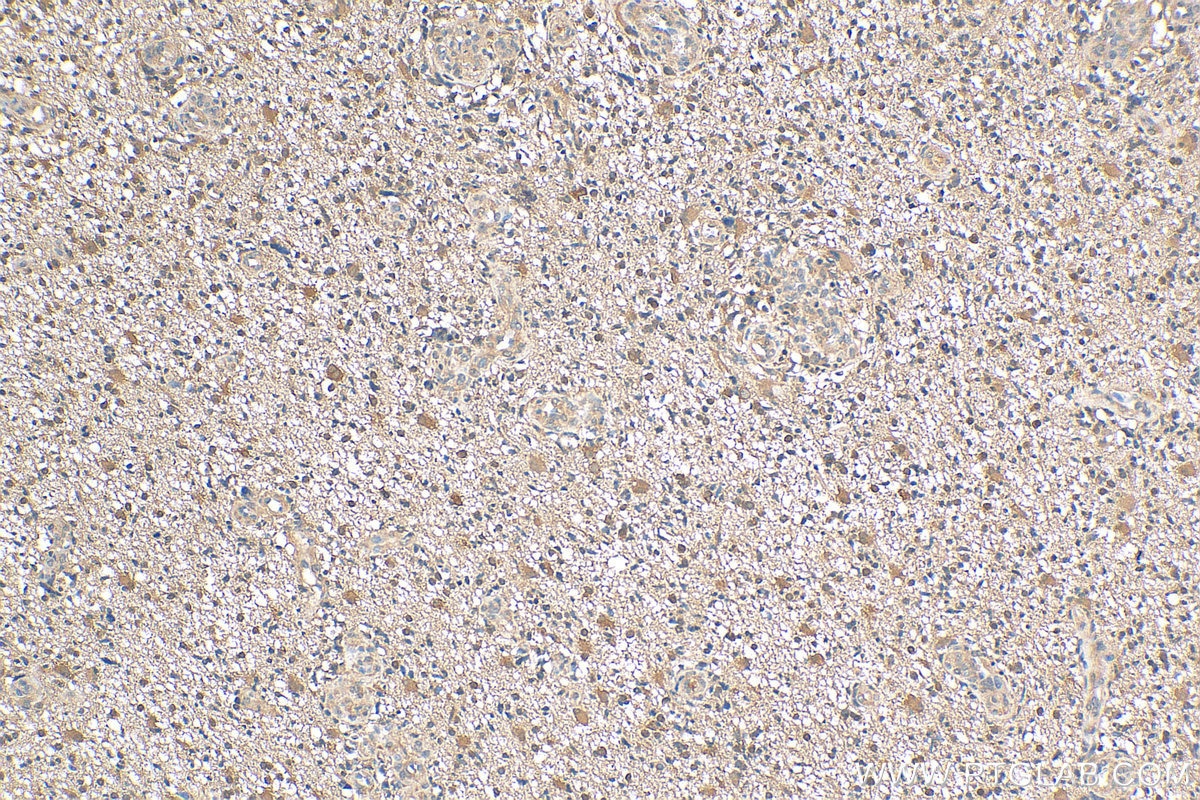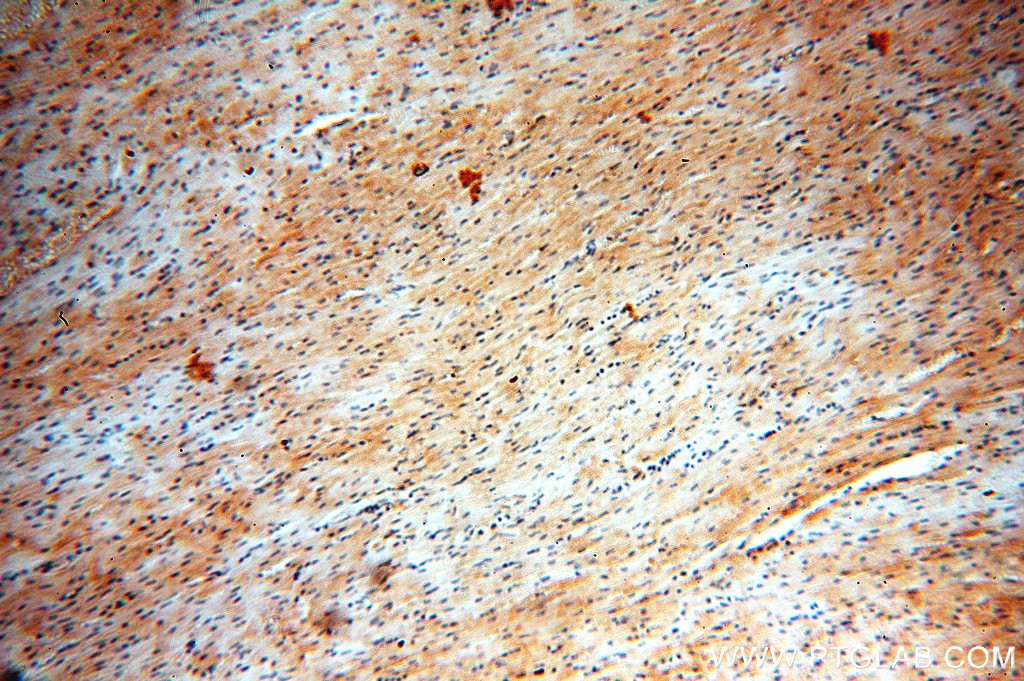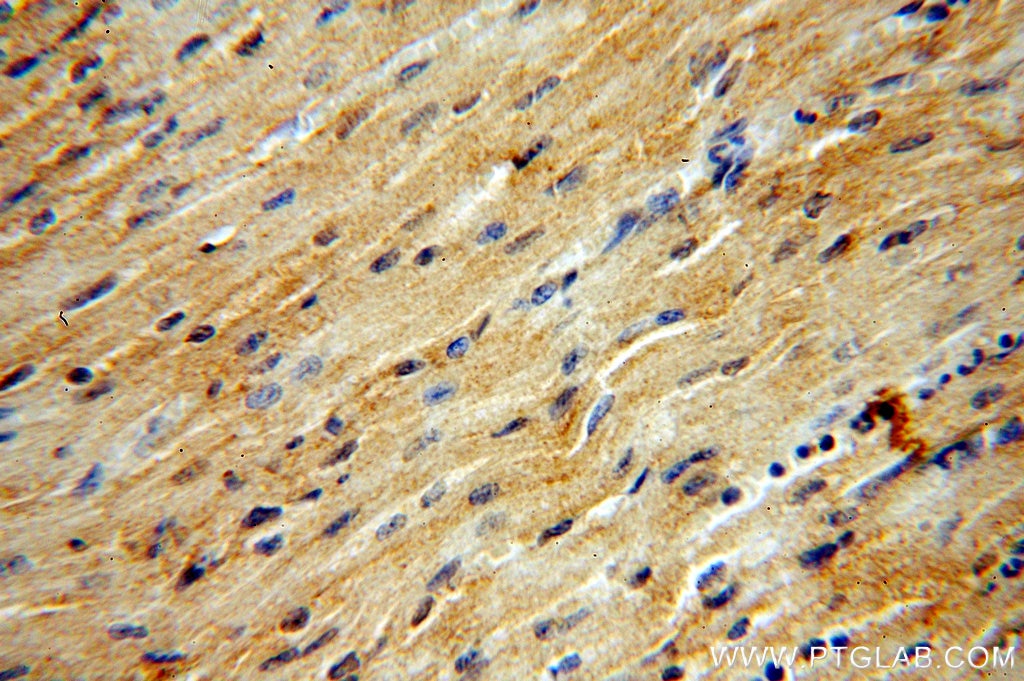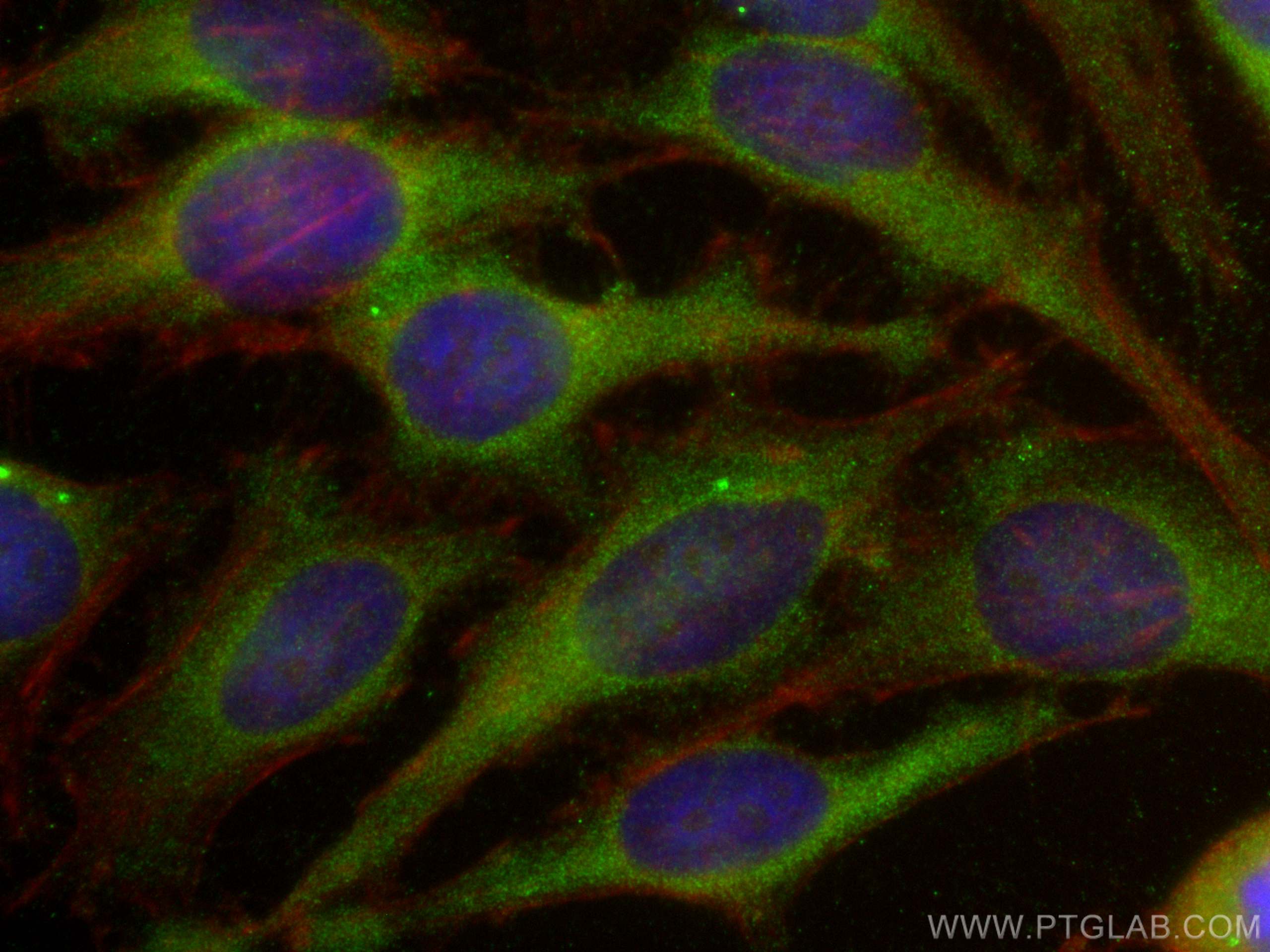Tested Applications
| Positive WB detected in | HEK-293 cells, A431 cells, HeLa cells |
| Positive IP detected in | HEK-293 cells |
| Positive IHC detected in | human breast cancer tissue, human gliomas tissue, human heart tissue Note: suggested antigen retrieval with TE buffer pH 9.0; (*) Alternatively, antigen retrieval may be performed with citrate buffer pH 6.0 |
| Positive IF/ICC detected in | HeLa cells |
Recommended dilution
| Application | Dilution |
|---|---|
| Western Blot (WB) | WB : 1:5000-1:50000 |
| Immunoprecipitation (IP) | IP : 0.5-4.0 ug for 1.0-3.0 mg of total protein lysate |
| Immunohistochemistry (IHC) | IHC : 1:100-1:400 |
| Immunofluorescence (IF)/ICC | IF/ICC : 1:200-1:800 |
| It is recommended that this reagent should be titrated in each testing system to obtain optimal results. | |
| Sample-dependent, Check data in validation data gallery. | |
Published Applications
| KD/KO | See 3 publications below |
| WB | See 40 publications below |
| IHC | See 3 publications below |
| IF | See 6 publications below |
| IP | See 2 publications below |
| CoIP | See 1 publications below |
Product Information
20145-1-AP targets SHP2 in WB, IHC, IF/ICC, IP, CoIP, ELISA, Cell treatment applications and shows reactivity with human, mouse, rat samples.
| Tested Reactivity | human, mouse, rat |
| Cited Reactivity | human, mouse, rat |
| Host / Isotype | Rabbit / IgG |
| Class | Polyclonal |
| Type | Antibody |
| Immunogen |
CatNo: Ag13660 Product name: Recombinant human PTPN11 protein Source: e coli.-derived, PGEX-4T Tag: GST Domain: 1-357 aa of BC008692 Sequence: MTSRRWFHPNITGVEAENLLLTRGVDGSFLARPSKSNPGDFTLSVRRNGAVTHIKIQNTGDYYDLYGGEKFATLAELVQYYMEHHGQLKEKNGDVIELKYPLNCADPTSERWFHGHLSGKEAEKLLTEKGKHGSFLVRESQSHPGDFVLSVRTGDDKGESNDGKSKVTHVMIRCQELKYDVGGGERFDSLTDLVEHYKKNPMVETLGTVLQLKQPLNTTRINAAEIESRVRELSKLAETTDKVKQGFWEEFETLQQQECKLLYSRKEGQRQENKNKNRYKNILPFDHTRVVLHDGDPNEPVSDYINANIIMPEFETKCNNSKPKKSYIATQGCLQNTVNDFWRMVFQENSRVIVMTT Predict reactive species |
| Full Name | protein tyrosine phosphatase, non-receptor type 11 |
| Calculated Molecular Weight | 597 aa, 68 kDa |
| Observed Molecular Weight | 68-75 kDa |
| GenBank Accession Number | BC008692 |
| Gene Symbol | PTPN11 |
| Gene ID (NCBI) | 5781 |
| RRID | AB_10699877 |
| Conjugate | Unconjugated |
| Form | Liquid |
| Purification Method | Antigen affinity purification |
| UNIPROT ID | Q06124 |
| Storage Buffer | PBS with 0.02% sodium azide and 50% glycerol, pH 7.3. |
| Storage Conditions | Store at -20°C. Stable for one year after shipment. Aliquoting is unnecessary for -20oC storage. 20ul sizes contain 0.1% BSA. |
Background Information
PTPN11(protein tyrosine phosphatase, non-receptor type 11) is also named as PTP-1D, PTP2, PTP2C, PTP3, SHP2, CFC, CFC, BPTP3, SH-PTP2, SH-PTP3, MGC14433 and belongs to the protein-tyrosine phosphatase family and non-receptor class 2 subfamily. It modulates and regulates signaling through numerous pathways, many of which are active in the developing endocardial cushions and implicated the ERK pathway as a central mechanism(PMID:19017799). Its signaling may play equally important roles in retinal survival in both physiological and pathological conditions(PMID:21576358). Defects in PTPN11 are the cause of LEOPARD syndrome type 1 (LEOPARD1), Noonan syndrome type 1 (NS1), juvenile myelomonocytic leukemia (JMML) and metachondromatosis (MC). It has 3 isoforms produced by alternative splicing.
Protocols
| Product Specific Protocols | |
|---|---|
| IF protocol for SHP2 antibody 20145-1-AP | Download protocol |
| IHC protocol for SHP2 antibody 20145-1-AP | Download protocol |
| IP protocol for SHP2 antibody 20145-1-AP | Download protocol |
| WB protocol for SHP2 antibody 20145-1-AP | Download protocol |
| Standard Protocols | |
|---|---|
| Click here to view our Standard Protocols |
Publications
| Species | Application | Title |
|---|---|---|
Nat Commun Targeting NRAS via miR-1304-5p or farnesyltransferase inhibition confers sensitivity to ALK inhibitors in ALK-mutant neuroblastoma | ||
Hepatology Shp2 promotes liver cancer stem cell expansion by augmenting β-catenin signaling and predicts chemotherapeutic response of patients.
| ||
Oncogene Overexpression of miR-489 derails mammary hierarchy structure and inhibits HER2/neu-induced tumorigenesis. | ||
Cell Chem Biol Cellular signals converge at the NOX2-SHP-2 axis to induce reductive carboxylation in cancer cells. | ||
Mol Ther Nucleic Acids miR-552 Regulates Liver Tumor-Initiating Cell Expansion and Sorafenib Resistance. | ||
Anal Chem Ionic Liquid-Based Extraction System for In-Depth Analysis of Membrane Protein Complexes. |

